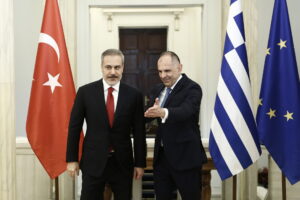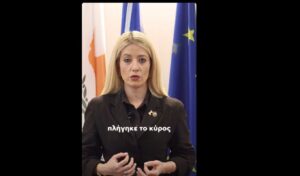One of the most significant moments of the SYRIZA government was undoubtedly the referendum held on July 5, 2015, on whether the Greek people approved or rejected the creditors’ proposal. This decision has been particularly debated as the overwhelming “no” vote by the Greek people (61.3%) was “translated” by Alexis Tsipras not as a choice for rupture but as a mandate for new negotiations. This very issue is expected to become a new point of friction, this time with MeRA25 leader Yanis Varoufakis, who has publicly maintained that Alexis Tsipras actually did not want the “no” vote to win in the referendum.
However, the excerpt released on Friday afternoon by the publishing house that will publish the book, in coordination with the former prime minister and which concerns the referendum, shows -according to SYRIZA officials who lived through those dramatic days- exactly the opposite. This is because he appears to take full responsibility for the most controversial decision of recent years, with all that this means for the former prime minister.
Alexis Tsipras’s references come in contrast, however, with what Yanis Varoufakis has said. In fact, on January 19, 2018, speaking on PARAPOLITIKA radio, he had noted that Alexis Tsipras and the SYRIZA government from the outset did not want the “no” vote to win. “I didn’t believe we would win, but I desired it. Tsipras didn’t want us to reach 51% at all costs,” he had characteristically stated, adding that at Maximos Mansion after the announcement of the result, the faces of Alexis Tsipras and government officials were sad despite the victory.
What Alexis Tsipras says about the referendum
In contrast, Alexis Tsipras in the excerpt released from his ITHAKI book states about the referendum: “It was the shield for the very salvation of the country. The partners had to understand that they were not facing a government exhausted by months of negotiations, ready either to capitulate or collapse. They were facing an entire people. And if they wanted to proceed without considering the consequences, they would now have to make a clear choice: to openly question not simply a government, but Democracy itself and popular sovereignty, in a European country that, let’s not forget, is the country that gave birth to Democracy. The referendum was my decision. Personal, deeply considered and psychologically difficult. I tormented myself over it, not only in my mind, but also in my heart. It was a decision with logic and with sensitivity, democratic sensitivity. The first to learn were my closest collaborators. I told them clearly: the problem is political. We couldn’t agree to what they were asking of us, not because we didn’t want to, but because what they were asking was the humiliation of the people and our political extinction. The decision wasn’t easy for me. I’m not someone who makes hasty decisions or takes leaps into the void, quite the opposite. I torment and am tormented by every decision I make. I weigh every move, calculate every detail, sometimes more than necessary. I considered, therefore, what would follow: the attacks, the pressures, the attempt at deconstruction. Not only against me, mainly against the country.”




